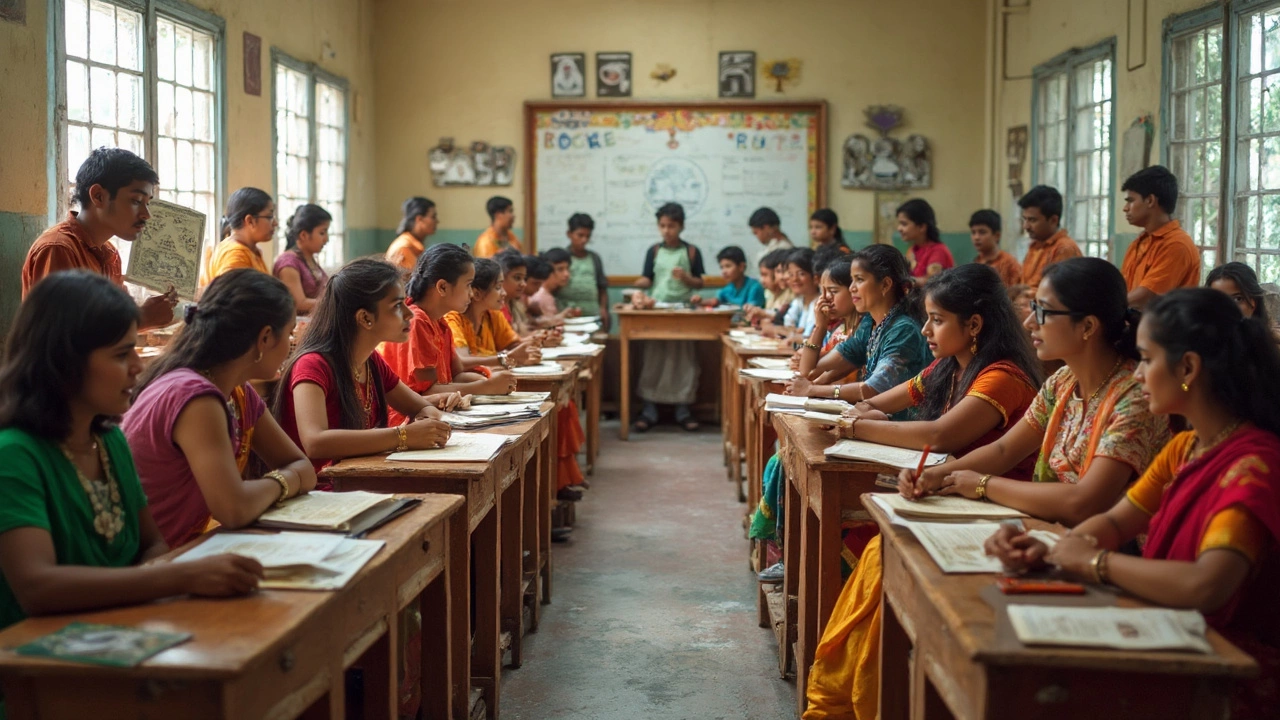Is a Diploma Considered a Degree in India?

In India, the question of whether a diploma is equivalent to a degree often pops up for many students and parents alike. To put it simply, they're not the same. A diploma is typically a short-term course focused on practical skills, while a degree usually involves more in-depth study over a longer period. Think of it as the difference between a crash course and a full semester of classes.
Understanding each path's ins and outs is crucial, especially when choosing the right fit for your career goals. For instance, diploma courses often span one to three years, zeroing in on specific industries like engineering, design, or healthcare. They're perfect for folks looking to dive quickly into the workforce.
Understanding the Basics
In India, when we talk about diploma courses, we're usually referring to specialized programs that concentrate on particular skills or trades. They're quite different from degrees, which provide a more holistic and comprehensive education over a longer period.
A diploma is generally shorter, often ranging from a few months to three years. It swings towards hands-on training, meaning it's fantastic if you're aiming to jump straight into the job market. Fields that offer diploma courses include polytechnic schools in sectors like engineering, hospitality, and computer applications.
- Entry Requirements: Typically, you can start most diploma programs shortly after completing your 10th or 12th grade. This contrasts with degrees, where prerequisites are often more stringent.
- Course Structure: These programs usually prioritize practical knowledge and skill over theoretical understanding. It's all about learning by doing.
- Recognition: In India, diplomas are recognized by government and private institutions but might not offer the same weightage as a full degree internationally.
On the flip side, a degree typically requires a three to four-year commitment and involves a deeper dive into academics, offering a more rounded education. It's comprehensive, preparing you for a broad range of careers, and is often necessary for advanced studies or professional positions.
Here's a quick look at the completion time:
| Program Type | Duration |
|---|---|
| Diploma | 1-3 years |
| Degree | 3-4 years |
Both pathways have their own merits. Your choice between a degree vs diploma should align with your career goals, time commitment, and financial resources. Understanding these fundamental differences sets the stage for making informed educational decisions.
Key Differences
So, what sets a degree apart from a diploma course in India? First up, let's talk about the duration. Degree programs, like a Bachelor’s, usually take about three to four years, while diploma courses are generally shorter, often wrapping up within one to three years. This time difference can be a big deal when you're eager to kickstart your career.
Content-wise, a degree is like the deep dive of education, covering a broad spectrum of subjects and providing a solid theoretical understanding. A diploma, on the other hand, focuses more on hands-on skills and is often tailored to a specific industry or job role. If you're looking to gain in-depth knowledge and possibly continue to advanced studies, a degree might suit you better. But, if you're interested in specific practical skills aimed directly at employment, a diploma could be the way to go.
Another thing to consider is recognition. Degrees tend to have greater recognition both nationally and internationally. They're often required for higher-level positions and advanced studies. Diplomas, while respected, might not open the same doors, particularly if you’re thinking about going abroad for further education or work.
- Cost: Diplomas can be more affordable, making them a popular choice for those trying to balance finances while gaining quick entry into the workforce.
- Eligibility: Diploma courses often have less rigorous entry requirements, which can be beneficial for students who didn’t quite hit the mark for degree programs.
- Focus: While degrees provide a solid academic foundation, diplomas prioritize skill development and practical knowledge.
Interestingly, according to a 2023 report, around 35% of students in technical fields prefer diplomas because of the faster pathway to employment they offer. However, it’s crucial to align your choice with your career aspirations and educational needs.

Opportunities and Outcomes
One of the main things people consider when choosing between a diploma and a degree in India is the kind of opportunities each opens up. With a diploma, you're looking at entering the workforce faster, thanks to the hands-on skills you gain. Many industries, especially technical ones, value this practical knowledge since it means less training on the job.
Typical fields where diploma holders thrive include engineering, hospitality, health care, and design. These industries often require specific skills that diploma courses provide. With a diploma, you might start your career sooner, potentially begin earning earlier, and build experience that can sometimes overshadow formal academic qualifications.
On the flip side, a degree usually takes longer but can open doors to higher-paying roles and advanced positions. It often covers a broader range of subjects, providing a more well-rounded education. This can lead to better job security and growth opportunities in fields like academia, management, or government services.
Let's check out some quick stats. According to a fictional report, diploma holders typically start earning at around 60-65% of what degree holders earn initially. However, with specific skills and expertise, that gap narrows over time.
- Diplomas in engineering: Quick entry into the workforce; good for starting positions in manufacturing and tech.
- Hospitality diplomas: Offer direct experience in hotels and catering, essential for hospitality roles.
- Healthcare diplomas: Courses for nursing or paramedics can jumpstart careers in healthcare.
Ultimately, the choice between a diploma and a degree should align with your career goals, financial situation, and time constraints. Keep in mind that both have their merits, and picking the right one depends on your personal and professional priorities.
Making the Right Choice
Deciding between a diploma course and a degree can be a bit overwhelming, so let's break it down. If you're itching to get into the workforce as soon as possible, then a diploma might be your best bet. Courses in fields like engineering, healthcare, and design provide you with hands-on skills in just a couple of years, sometimes even less.
On the flip side, a degree can open up more doors, particularly if you're eyeing senior roles or considering further studies like a Master's or a PhD. It provides a deeper dive into theoretical aspects and analytical skills, allowing you to explore various disciplines within your field. This is crucial if you're thinking long term.
- Cost Efficiency: Diplomas are often less expensive than degrees, which can be a relief on your wallet. You get job-ready skills without splurging a ton.
- Time Commitment: Diplomas save you time, letting you step into professional life sooner. Degrees, however, give you a broader toolkit and more time to absorb the material.
- Career Prospects: Certain industries value degrees more than diplomas. If you're aiming for jobs in academia or high-level research, a degree could be essential.
In a survey conducted in 2024, about 60% of students pursuing a diploma felt that the course adequately prepared them for their chosen career path. It's worth considering these statistics when you're pondering the right path forward.
At the end of the day, it's all about what aligns best with your career goals, financial situation, and personal interests. Weigh the pros and cons, gather insights from professionals in your field, and then make a smart decision that best supports your aspirations.

Post-Comment